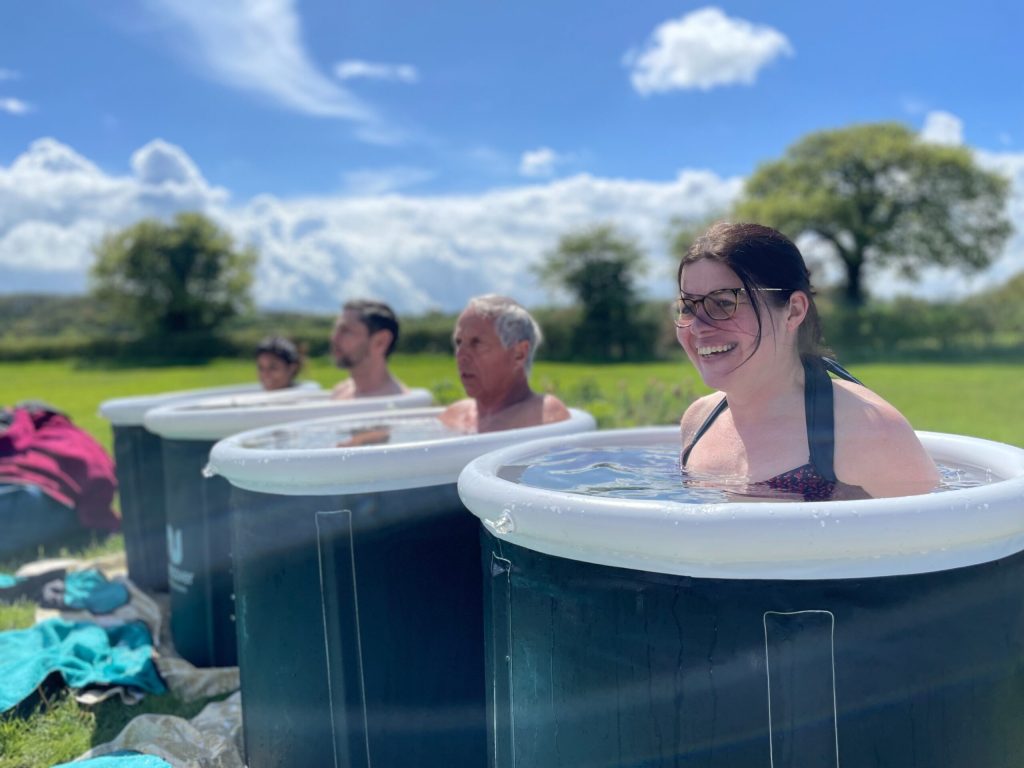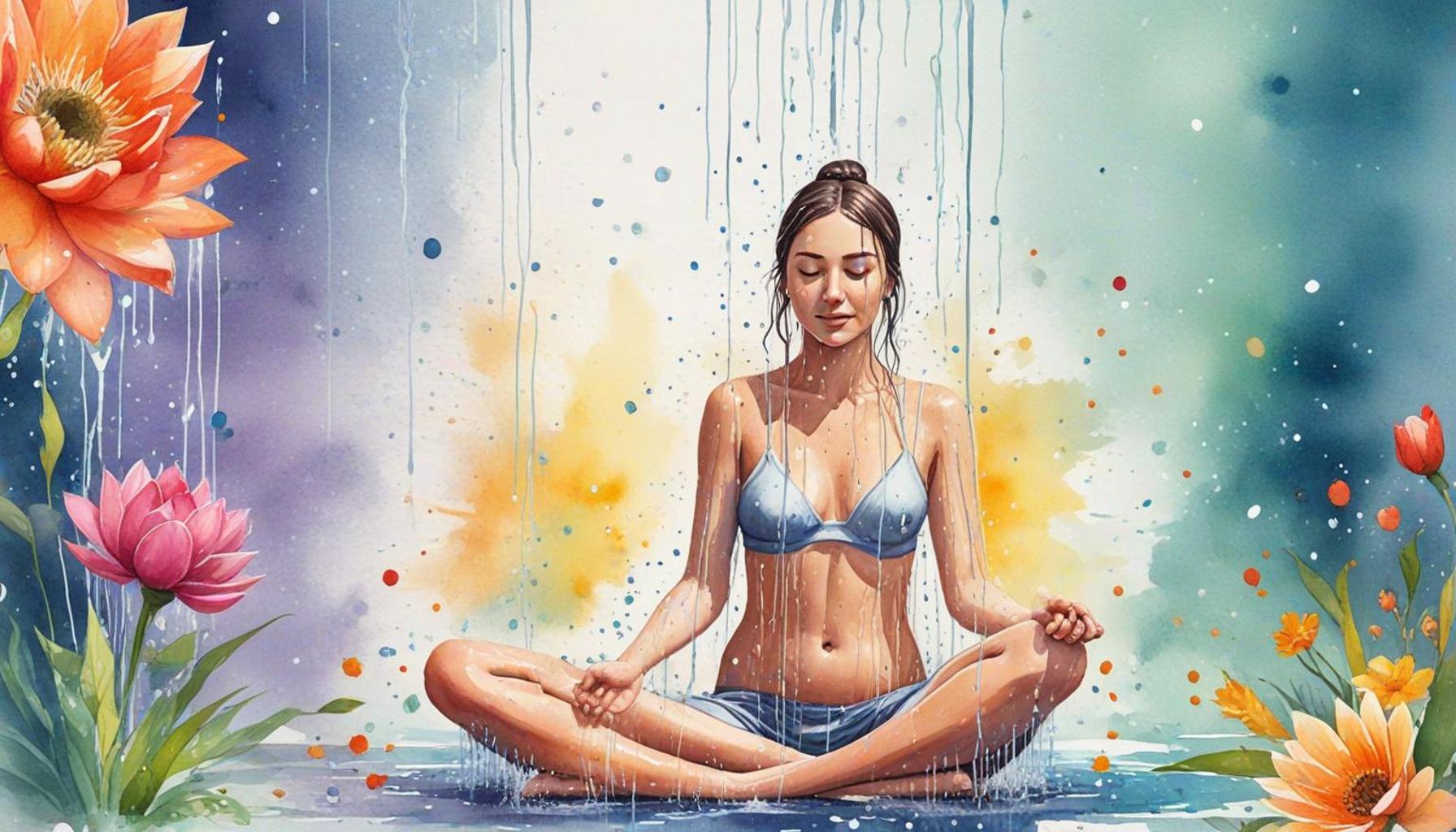How Water Temperature Enhances Mindfulness A Step-by-Step Guide

Unlocking the Power of Water Temperature
Water is an essential element for life, but its temperature can also significantly influence our mental state. Engaging with water, whether through bathing, swimming, or meditation, offers unique opportunities to enhance mindfulness. This article delves into how varying water temperatures can help cultivate presence and awareness.
The Connection Between Water and Mindfulness
Science suggests that temperature affects our sensory perception and mental clarity. Research indicates that our brain’s response to temperature can alter mood and cognitive performance. Here are some intriguing aspects of this connection:
- Warm water: Soaking in warm water, such as during a bath or a relaxing swim in a heated pool, promotes relaxation and reduces stress by increasing blood circulation. It encourages the release of endorphins, which can help alleviate feelings of anxiety. This soothing effect allows individuals to clear their minds, making it easier to focus on the present moment.
- Cold water: Immersing oneself in cold water, such as taking a plunge into the invigorating waters of a local river or lake, may invigorate the body and sharpen mental acuity. Cold exposure is known to enhance alertness and can lead to a surge of energy, heightening sensory awareness. This practice can stimulate the body’s fight-or-flight response, reminding us of our vitality and resilience.
- Natural water sources: Nigeria has a wealth of beautiful rivers and lakes, such as the serene Olumirin Waterfalls and the expansive Lekki Lagoon. These tranquil settings are perfect for mindfulness practices, offering a unique opportunity to connect with nature while harnessing the calming effects of water.
Incorporating various water temperatures into your mindfulness practice can be transformative. For instance, simply adjusting your shower temperature can provide a refreshing wake-up call or a comforting wind-down at the end of the day. Alternatively, taking time to immerse yourself in a local stream or relaxing at a nearby beach can deepen your connection to the environment and promote reflection.
A Step-by-Step Guide Awaits
Prepare to embark on a journey to discover how to effectively use water temperature for a more mindful existence. Begin by experimenting with warm baths infused with natural oils, such as eucalyptus or lavender, to soothe your mind and body. Follow up with a refreshing walk to a nearby natural water source, immersing your feet or body in the cool flow to invigorate your senses.
By understanding the effects of warm and cold water, you can tap into new strategies for enhancing your mindfulness practice and enriching your daily life. Creating a balance between relaxation and invigoration will not only elevate your mood but also foster a greater appreciation for the world around you.

CHECK OUT: Click here to explore more
Embracing Warm Water for Relaxation and Clarity
Engaging with warm water can create an oasis of tranquility, reaping numerous benefits for both the body and mind. When you immerse yourself in warm water, the soothing heat penetrates your muscles, easing tension and promoting a sense of calm. This is particularly relevant in Nigeria, where the tropical climate can add stress to daily life. Harnessing the power of warm water can serve as a therapeutic escape, allowing for vital moments of relaxation.
As you soak in a warm bath or enjoy a leisurely swim in a heated pool, consider the following benefits that contribute to enhancing mindfulness:
- Stress Reduction: Warm water aids in reducing cortisol levels, the stress hormone, thus promoting a state of relaxation. This physiological change empowers you to clear your mind and focus more intently on the present moment.
- Enhanced Circulation: The warmth of water stimulates blood flow, which in turn increases oxygen delivery to various parts of the body. This can lead to a joyful, invigorating experience, enabling greater awareness of your surroundings.
- Mindful Breathing: While immersed in warm water, practitioners can engage in deep, mindful breathing exercises. This practice not only calms the mind but also centers your thoughts, bringing clarity and focus. Coupling breath control with the sensation of warm water creates a unique mindfulness experience.
To effectively incorporate warm water into your mindfulness practice, consider creating a serene atmosphere in your bathroom or surrounding area. Utilize candles, soft music, or essential oils like lavender to engage your senses further, making the experience more immersive. As you lower yourself into the warm water, take a moment to focus on how your body feels as it relaxes, taking note of your thoughts and sensations.
The Invigorating Power of Cold Water
In contrast to the warm water experience, cold water brings a different set of mental benefits through its invigorating and reinvigorating properties. This aspect of water temperature can enhance mindfulness by compelling one to confront and embrace discomfort, ultimately leading to greater resilience and mental clarity.
Exposure to cold water, whether through a brisk shower, an ice bath, or a dip in a nearby river like the serene Niger, can be a transformative experience. Here are some benefits of incorporating cold water into your mindfulness practice:
- Heightened Alertness: Cold water acts as a natural stimulant that jolts the senses into clarity. The body responds to low temperatures by generating energy, making you more alert and present in your environment.
- Anxiety Alleviation: A cold plunge can trigger the release of endorphins, which can help lift your mood and alleviate feelings of anxiety. This emergent state of mind opens the door to focused reflections.
- Cultivating Grit: Regular cold water exposure encourages mental toughness, helping you to embrace discomfort. This resilience can translate to other aspects of life, fostering a stronger sense of mindfulness in facing everyday challenges.
As you navigate the dual benefits of warm and cold water, you will discover how both temperatures can play vital roles in enhancing your mindfulness journey. Balancing relaxation and invigoration can cultivate a rich understanding of yourself and your surroundings.
Exploring the Impact of Water Temperature on Mindfulness
Understanding how water temperature influences mindfulness can significantly enhance your overall experience of mindfulness practices. Different temperatures evoke various physiological and psychological responses that can help you reach a deeper state of awareness and relaxation. This segment elucidates the key factors influencing your mindfulness journey through water therapy.
The Science of Temperature-Driven Relaxation
Chilly water can awaken your senses, urging you to focus intently on your breathing and physical sensations. When submerged in cold water, your body reacts by increasing blood circulation, which can heighten your mental clarity. Meanwhile, warm water promotes muscle relaxation and lowers cortisol levels in the body, allowing for a tranquil mind and heightened awareness. By carefully selecting the temperature of the water, you can tailor your mindfulness sessions to meet your emotional needs.
Incorporating Temperature Techniques
To embrace these advantages effectively, consider alternating between warm and cold water immersions. Start with a warm soak to relax before transitioning to a cooler temperature, stimulating alertness and clarity. This contrasts in temperature can serve as a meditative practice, enhancing your focus and engagement with the present moment. Another impactful method is utilizing temperature during breathing exercises. Inhale deeply as you immerse in warmer water, allowing the warmth to envelop you, followed by an exhale as you plunge into cooler water. This technique not only bolsters awareness of your breath but also enhances your resilience in physical and emotional challenges.By integrating water temperature into your mindfulness routine, you open a pathway to enriched experiences. Whether through a calming warm bath or an invigorating cold plunge, the right temperature can profoundly enhance your journey towards mindfulness. Explore these methods further, and you may find an exciting new dimension in your mindfulness practice.
| Advantages | Details |
|---|---|
| Enhanced Focus | Cool water stimulates alertness and sharpens concentration. |
| Deep Relaxation | Warm water decreases stress hormones, promoting tranquility. |
Implementing these elements into your routine not only allows for improved mindfulness but creates a holistic approach to enhancing your well-being. Each water temperature offers a unique contribution, encouraging you to experiment and find what works best for your mindfulness journey.
SEE ALSO: Click here to read another article
Integrating Water Temperature into Daily Mindfulness Practices
It’s fascinating how water—one of nature’s most essential elements—can significantly enhance mindfulness. By understanding and incorporating various water temperatures into your daily routine, you can create a transformative practice that promotes both physical and mental well-being.
In Nigeria, where access to natural water sources like rivers, lakes, and the ocean can bring invigorating experiences, harnessing the benefits of water temperatures becomes even more accessible. Reflecting on how these practices can fit seamlessly into your lifestyle, consider the following steps:
1. Morning Cold Shower Ritual
Start your day with a refreshing cold shower. This practice helps to awaken your senses, igniting your mind and body for the day ahead. The shock of cold water can increase alertness and stimulate circulation, setting a positive tone for mindfulness. As you stand under the cold stream, focus on the sensations, let the water wash away any lingering sleep, and take a moment to set intentions for the day.
2. Midday Warm Soak
After a busy morning in the bustling atmosphere of a Nigerian city like Lagos or Abuja, find time for a warm soak or bath. Creating a private space filled with calming elements like essential oils, soft lighting, and soothing sounds fosters relaxation. As you immerse yourself, reflect on your morning—acknowledge your steps and breathe deeply to center your thoughts. This warm embrace offers an opportunity to recalibrate and cultivate a mindful awareness.
3. Cold Water Dips During Breaks
Incorporating short cold water dips during breaks can be revitalizing. Look for nearby rivers or lakes, making use of Nigeria’s rich natural resources. Submerging yourself even briefly in cold water can elevate your mood and instill a sense of empowerment as you embrace the sensation. This practice encourages you to return to your tasks with renewed energy and clarity.
4. Evening Warm Ritual
As the day winds down, indulge in an evening warm water ritual. Whether it’s a gentle bath or spending time in a sauna, this practice helps ease the stresses accumulated throughout the day. This transition between the hustle of daily life and the calm of the evening can greatly enhance mindful reflection. Explore your thoughts and feelings of the day, allowing the warm water to stimulate self-awareness.
5. Mindful Swimming
Engage in mindful swimming as a way to connect your mind and body. Swimming in cool waters, whether in a pool or natural setting, can facilitate a state of meditative focus. Pay attention to each movement, how your body feels in the water, and the rhythm of your breath. This practice can ground you in the present, encouraging a deeper connection with your surroundings.
As you explore these varied approaches to water temperature, remember that mindfulness is about tuning into your body and emotions. Each practice invites opportunities for self-discovery and presents a holistic approach to mental wellness. By regularly embracing the soothing qualities of water—both warm and cold—you develop resilience and foster a profound sense of presence.
CHECK OUT: Click here to explore more
Conclusion: Embracing Water Temperature for Enhanced Mindfulness
In conclusion, integrating water temperature into your mindfulness practices offers a unique approach to enhancing your mental well-being and self-awareness. By understanding the effects of both cold and warm water, you can tailor daily routines that rejuvenate your body and calm your mind. From energizing cold showers to soothing warm baths, each experience deepens your connection with yourself and your surroundings.
In Nigeria, with its wealth of natural water sources, the potential for embodying this practice is endless. Exploring local rivers for cold dips or creating tranquil bath environments allows you to harness the beauty of your environment while promoting mindfulness. Additionally, engaging in activities like mindful swimming not only connects you to the water but also encourages introspection and relaxation.
As you embark on this journey, remember that mindfulness revolves around your ability to be present and aware. By consciously utilizing water temperature as a tool for mindfulness, you empower yourself to navigate through life’s demands with greater clarity and resilience. Embrace this holistic method and watch as it transforms your daily experiences, ultimately leading you to a deeper understanding of your thoughts and emotions.
Now is the time to seize the therapeutic potential of water. Incorporate these practices into your lifestyle and infuse your days with a renewed sense of mindfulness and vitality. Your journey towards enhanced self-discovery and mental wellness starts with a single splash.


